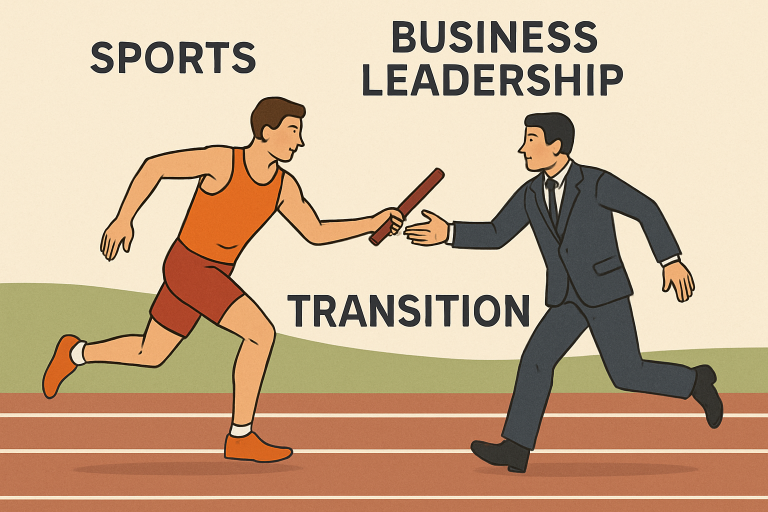
From Championship Titles to Boardrooms: The Athlete-to-Executive Journey
Key Takeaways
- Athletes possess transferable skills such as discipline, teamwork, and resilience that are invaluable in the corporate environment.
- Continuous education and skill development are crucial for athletes aiming to succeed in business leadership roles.
- Building a strong professional network and seeking mentorship can significantly ease the transition from sports to business.
Athletes transitioning from professional sports to the business world often bring a strong foundation in discipline, leadership, and perseverance. These qualities, shaped by years of high-pressure competition, can translate effectively into boardroom decision-making and entrepreneurial ventures. Many former athletes have found success off the field by applying the mindset that once drove their performance on the field—strategic thinking, mental toughness, and the ability to lead under pressure.
Their post-sports careers often serve as powerful examples of adaptability and growth. Companies and organizations interested in exploring these lessons sometimes book Magic Johnson speaking appearance engagements to gain insight from one of the most well-known athlete-turned-executives. His journey reflects many athletes’ broader path, where business becomes the next arena to compete and thrive. Through careful planning and the right opportunities, these individuals continue to redefine what success looks like beyond sports.
Transferring Athletic Skills to Business Leadership
At the heart of every athlete’s success is a relentless discipline—an ability to commit to daily routine, embrace hard work, and maintain focus in pursuit of long-term goals. This powerful drive naturally translates into the workplace, becoming a foundation for productivity, time management, and excellent execution under tight deadlines. In addition, athletes’ experience thriving in high-pressure environments closely mirrors the demands placed on corporate leaders, who must navigate periods of volatility and make critical decisions often with limited information and time.
Participation in team sports further cultivates essential qualities such as communication, leadership, and cooperation—abilities that lie at the core of any high-performing business team. Athletes are adept at understanding team dynamics, aligning diverse personalities behind a unified goal, and stepping up as leaders and collaborators. Perhaps above all, athletes constantly encounter—and overcome—adversity, be it physical injury, tough losses, or public scrutiny. This real-world experience breeds unparalleled resilience and mental toughness, a set of strengths executives draw upon to lead organizations through uncertainty and foster a culture that flourishes, even in the face of setbacks.

Continuous Learning: A Cornerstone for Success
While the skillset developed through years of athletic competition is formidable, venturing into business leadership often requires former athletes to pursue additional academic and professional development. Many enhance their credentials by pursuing undergraduate and graduate degrees in business, management, or finance, laying a strong foundation in strategic thinking, organizational behavior, and financial stewardship. Others opt for focused executive education courses and seminars, equipping themselves with the latest industry knowledge and practical tools tailored to the demands of executive roles.
Beyond the confines of formal education, athletes who truly thrive as executives are lifelong learners. Their pursuit of continuous growth spans various competencies, from mastering public speaking and digital marketing to sharpening their negotiation, analytics, and emotional intelligence skills. They remain agile and adaptable in today’s ever-evolving business world by seeking mentorship, consuming business literature, and engaging in professional workshops. The commitment to continuous improvement—in sports or business—remains a defining edge.
Building a Robust Professional Network
Networking is one of the most potent assets any leader can possess, and athletes—by their backgrounds—often enter the corporate world with a natural talent for connecting with others and fostering collaboration. Establishing a robust professional network is critical for accessing executive opportunities and gaining strategic insights and support. Athlete-executives can form relationships that fuel personal and organizational success by participating in industry conferences, joining relevant business associations, and participating in alumni groups.
In addition to professional networking, pursuing mentorship relationships is especially transformative. Experienced business mentors offer perspective, validation, and practical advice—often sharing their lessons from the C-suite to help map out a strategy for advancement. These relationships also provide a vital support system, assisting former athletes in acclimating to a new professional identity and navigating potential culture shock. Guidance from industry veterans and engagement with peer groups foster a sense of belonging while accelerating career trajectory.
Overcoming Challenges in the Transition
Despite former athletes’ many natural advantages, the journey from sports arena to boardroom is challenging. Many face gaps in formal business knowledge, particularly in areas like finance, operations, or corporate law—skills critical to executive success. Addressing these shortfalls may require formal study, industry certification, or starting in operational roles that provide hands-on business experience before ascending to the executive level.
Athletes also encounter differences in organizational culture. In sports, objectives are clear, performance is openly measured, and feedback is often immediate and direct. By contrast, corporate environments frequently operate with more complex hierarchies, subtle decision-making dynamics, and less immediate validation. Adjusting to the expectations, workflows, and unwritten rules of the business world takes patience and adaptability. Support from mentors, participation in professional communities, and access to transition-focused resources are vital for building confidence, developing business acumen, and ultimately, thriving in unfamiliar professional terrain.
Conclusion
Moving from championship titles to C-suite positions is a demanding endeavor that requires as much strategic planning and resilience as any high-stakes sporting event. However, by leveraging their innate strengths—discipline, adaptability, teamwork—embracing a mindset of continuous learning, and deeply investing in networking and mentorship, former athletes are proving to be exceptional business leaders. Their presence and insight help organizations unlock new potential, foster strong, resilient cultures, and inspire teams long after their days on the playing field have ended. For forward-thinking companies and leaders striving for transformative growth, looking to the sports world for talent and best practices is a winning strategy with proven performance and valuable lessons for the future of business leadership.


Average Rating